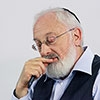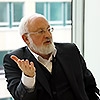 Comment: Shame and guilt are feelings directly related to social norms. As norms are changing, shame and guilt are changing. What used to be shameful is not considered so today. Shame, nevertheless, is the result of incongruity to the ideal. Self-condemnation is a destructive forms of shame is constant self-condemnation.
Comment: Shame and guilt are feelings directly related to social norms. As norms are changing, shame and guilt are changing. What used to be shameful is not considered so today. Shame, nevertheless, is the result of incongruity to the ideal. Self-condemnation is a destructive forms of shame is constant self-condemnation.
My Response: That is correct. Why does a person feel ashamed? As a result of self-condemnation.
Question: What does he condemn himself for?
Answer: Everything. That is why there is a sense of shame: “Why am I like this? What is wrong with me?” And so on and so forth.
Question: Is this feeling good or bad, and should it be exterminated?
Answer: It should be very well targeted. Then there will be no sense of shame, and there will be serious work on yourself.
Question: Should there or should there not be a sense of shame?
Answer: The feeling of shame for the fact that you did not have time to correct yourself into something more proper, kind, and so on.
Question: So, I actually have to see something good in front of me in order to experience shame? I do not see anything too good around me. There must be an ideal opposite me. There are no ideals today. I am talking about an ordinary person.
Answer: No, it is not about you seeing the ideal in someone in front of you. The fact is that you would see yourself a little better, a little better than yourself at the moment.
Question: Where does the point of shame begin—from which moment? I have to see something good and feel that I am not like that?
Answer: The point of shame begins from the moment you study yourself and realize that you have to be a little better and comparing this image—to be better than yourself—shame arises from the difference between them.
Question: Where can I get this image?
Answer: We can get it only if we study the science of Kabbalah. It will tell us what it means to be righteous and, based on this, we will see how much we have not grown to this level, and we will be ashamed.
Question: What is a righteous person from the point of view of Kabbalah?
Answer: A righteous person is one that justifies the Creator’s action on him. In everything. And then, by realizing that I am not like that, I feel ashamed.
Question: Then there are two shames. Is the shame experienced by an ordinary person in our life real shame?
Answer: That is a different matter. It is a shame that I was caught stealing, and so on.
Question: Would you call it shame, the fact that I was caught?
Answer: Of course. There are a lot of people who blush like that. And if they were not caught, they would feel proud.
Question: But that is not the same shame you talk about all the time?
Answer: No. I am only talking about the shame that arises in a person who feels himself a degree less than he should have been. Meaning, a degree less than the righteous. And he must come closer to this state of the righteous all the time.
Question: Shame in our world, the usual shame when a person blushes that he was caught stealing, does this shame lead to that other shame or is it a step toward it? Or is it purposely given to us in this world after all?
Answer: It is interconnected but very complicated.
We should try to do what is revealed to us.
Question: And when a parent says to a child: “You should be ashamed of what you did,” where does he come from?
Answer: He must proceed from the fact that the child will correctly discern between what is desired and what is actually there.
And when a child understands this difference, he is ashamed that he is not in the best state where he could be, and then this feeling arises in him which can be called shame.
[304675]
From KabTV’s “New with Michael Laitman” 8/18/22
Related Material:
The Right Attitude To Shame
Is Shame A Means Of Defeat Or An Ascent?
Shame Develops Man
Filed under: News, Spiritual Work - No Comments →
 Question: What is democracy in your view?
Question: What is democracy in your view?

 Michael Laitman, On Quora:
Michael Laitman, On Quora:




